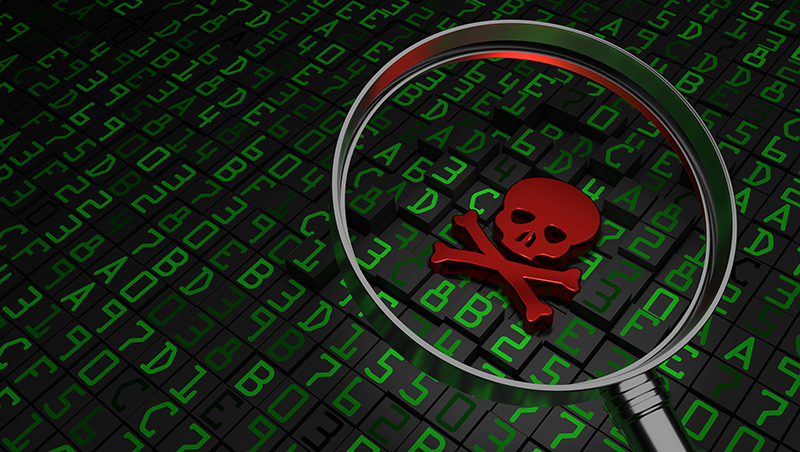Experts recover data encrypted by Petya ransomware
Get your data back without paying criminals


Victims of ransomware that has infected machines and prevented access to data may now be able to regain access to those files, thanks to an unidentified developer that managed to crack the malware.
The programmer, who is only known by their Twitter handle Leo_and_Stone, released the tool via code-sharing site Github. They developed the code to help their father-in-law, who's machine was infected by the malware.
The malware, which has been in circulation since March, locks up data and demands a ransom of 0.9 bitcoins (264). It arrives hidden in emails purporting to come from people looking for employment.
The malware replaces the hard drive's legitimate Mast Boot Record code. It encrypts the master file table (MFT) and display a ransom note.
What is novel about this malware is that the files are not encrypted. It is the MFT that has been changed so the operating system cannot locate data. Data recovery tools can reconstruct files, but this is not always successful.
The code developed by Leo_and_Stone means that data recovery or paying a ransom is no longer necessary. Experts from BleepingComputer.com confirmed that the method works, but it entails extracting some data from an affected hard drive.
Tim Stiller, senior systems engineer at Rapid7, told IT Pro that what is unique about Petya ransomware and this new decryption tool is the ability to recover files without paying bitcoins.
Sign up today and you will receive a free copy of our Future Focus 2025 report - the leading guidance on AI, cybersecurity and other IT challenges as per 700+ senior executives
"Many ransomware variants go to great lengths to thwart the user from decrypting the files without paying the ransom. In Petya's case, the disk was encrypted with just a single key. While the description technique for decryption can be a bit complex for some, it works," he said.
"For victims infected with Petya, this tool is very helpful at recovering their data. From the malware author's perspective, this particular decryption tool will likely prompt them to either change how the encryption functions, or shift over to a file-by-file level encryption, thus patching the ability to recover data.
"For organisations dealing with threats such as this, it is recommended that they maintain recent backups of their data and avoid opening any emails and attachments that they are unsure about. If they have any concerns, they should forward suspect emails to the security team for triage," he added.
Rene Millman is a freelance writer and broadcaster who covers cybersecurity, AI, IoT, and the cloud. He also works as a contributing analyst at GigaOm and has previously worked as an analyst for Gartner covering the infrastructure market. He has made numerous television appearances to give his views and expertise on technology trends and companies that affect and shape our lives. You can follow Rene Millman on Twitter.
-
 AWS targets IT modernization gains with new agentic AI features in Transform
AWS targets IT modernization gains with new agentic AI features in TransformNews New custom agents aim to speed up legacy code modernization and mainframe overhauls
-
 HSBC partners with Mistral to fuel bank-wide generative AI adoption
HSBC partners with Mistral to fuel bank-wide generative AI adoptionNews The multi-year, strategic partnership will focus on transforming a range of services and tasks from customer-facing to fraud detection and more
-
 15-year-old revealed as key player in Scattered LAPSUS$ Hunters
15-year-old revealed as key player in Scattered LAPSUS$ HuntersNews 'Rey' says he's trying to leave Scattered LAPSUS$ Hunters and is prepared to cooperate with law enforcement
-
 The Scattered Lapsus$ Hunters group is targeting Zendesk customers – here’s what you need to know
The Scattered Lapsus$ Hunters group is targeting Zendesk customers – here’s what you need to knowNews The group appears to be infecting support and help-desk personnel with remote access trojans and other forms of malware
-
 Impact of Asahi cyber attack laid bare as company confirms 1.5 million customers exposed
Impact of Asahi cyber attack laid bare as company confirms 1.5 million customers exposedNews No ransom has been paid, said president and group CEO Atsushi Katsuki, and the company is restoring its systems
-
 The US, UK, and Australia just imposed sanctions on a Russian cyber crime group – 'we are exposing their dark networks and going after those responsible'
The US, UK, and Australia just imposed sanctions on a Russian cyber crime group – 'we are exposing their dark networks and going after those responsible'News Media Land offers 'bulletproof' hosting services used for ransomware and DDoS attacks around the world
-
 A notorious ransomware group is spreading fake Microsoft Teams ads to snare victims
A notorious ransomware group is spreading fake Microsoft Teams ads to snare victimsNews The Rhysida ransomware group is leveraging Trusted Signing from Microsoft to lend plausibility to its activities
-
 Volkswagen confirms security ‘incident’ amid ransomware breach claims
Volkswagen confirms security ‘incident’ amid ransomware breach claimsNews Volkswagen has confirmed a security "incident" has occurred, but insists no IT systems have been compromised.
-
 The number of ransomware groups rockets as new, smaller players emerge
The number of ransomware groups rockets as new, smaller players emergeNews The good news is that the number of victims remains steady
-
 Teens arrested over nursery chain Kido hack
Teens arrested over nursery chain Kido hacknews The ransom attack caused widespread shock when the hackers published children's personal data
